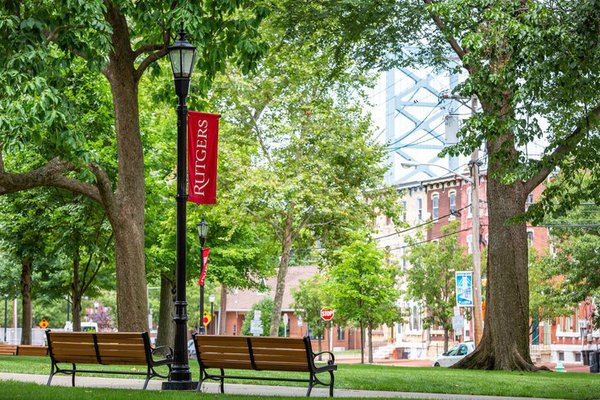Rutgers University and the faculty and graduate student unions that went on strike in April have reached a tentative agreement that would give salary increases and new benefits to 9,000 educators, researchers and clinicians.
Members of the three unions will vote on new contracts later this week. If ratified, they would end months of division between the university and the union members. The unions have been seeking four-year contracts retroactive to last July. They went on strike for one week in April in their pursuit of guaranteed salary increases, greater job security and protections against harassment for staff and graduate workers. The work stoppage was the first in the university's 257-year history.
- MORE NEWS
- SEPTA awards design contract for accessibility upgrades to three Broad Street Line stations
- After year of enforced plastic bag ban, Philly residents are starting to use less paper bags, too
- Philly's mayoral race lacks a clear frontrunner, first poll shows
"We are a democratic union, and our members have the final say on whether these (contracts) are ratified," the three unions said in a statement to members Sunday night. "We're proud of what we achieved by going on strike and joining together for the Rutgers we and our students deserve. We believe these are strong contracts that make numerous advances for our members. We didn't win everything we asked for and deserve, but no labor contract ever does."
Under the agreement, full-time faculty members would receive 3.75% salary increases, paid as a flat dollar amount of $5,035, for the first year. Over the duration of their contract, they would receive 14% salary increases. The minimum salary for graduate assistants and teaching assistants would be increased to $34,678 for the first year and $40,000 by the final year.
Adjunct professors would receive $7,530 for teaching a three-credit class in the first year and $8,331 in the fourth year as part of a 43.7% pay increase over the life of the contracts. Higher-ranking adjuncts would receive higher-credit pay to further boost their compensation.
Postdoctoral instructors would see their minimum salary increased to $52,500 in the first year and $63,968 by the fourth year. Faculty and staff would gain protections for academic freedom and against caste-based discrimination and harassment. Rutgers' practice of replacing unionized biomedical clinicians with non-union workers also would end.
Teaching assistants and graduate assistants would not be required to work when the university is closed, and more biomedical faculty would be eligible for parental leave. Postdocs would receive up to 22 days of paid vacation time and additional access to bereavement time.
If union members vote to reject the contracts, negotiations would continue, with the potential for another work stoppage. The unions' strike was suspended after New Jersey Gov. Phil Murphy met with both sides and announced that a tentative framework had been reached.
"As one of the nation's leading universities, Rutgers has long been a source of pride for our state," Murphy said shortly after the tentative agreement was announced. "Ensuring Rutgers faculty are respected and fairly compensated will result in a better educational experience for students, educators and staff. Furthermore, resolving these complex concerns through good faith negotiations is a testament that all sides can come together and work through their differences for the common good."
The tentative contracts do not include provisions for subsidized childcare, a priority of the unions. Additional details about health insurance coverage and part-time lecturers will be finalized in future bargaining sessions between the unions and Rutgers leadership, NJ.com reported.
The agreement also includes $600,000 in state funding for the Common Good Community Fund, administered through a nonprofit organization and renewable annually. The funding would prohibit Rutgers from withholding or restricting registration, access to transcripts or access to diplomas due to unpaid university fees and parking citations.
Rutgers University President Jonathan Holloway, who had questioned whether the work stoppage was legal, celebrated the tentative agreement in a message to students and families. He thanked union leaders and Murphy for support in ensuring that contract negotiations could continue.
"The agreement with the union leaders, which was today approved by their Executive Council and still requires ratification from the broader union membership, provides substantial salary increases for full-time faculty, graduate assistants, teaching assistants and others," Holloway wrote. "Reaching this point today is a recognition that we all can come together and work through our differences for the good of the university."
During the strike, which lasted April 10-15, classes were not canceled. After union members returned, negotiations continued for two weeks to reach the tentative agreement before Monday, the final day of classes.
Faculty and staff will hold final exams for students beginning Thursday and will attend commencement ceremonies on May 14-16.
A full copy of the tentative agreement will be made public if they are ratified by union members. Summaries are available from the union and university.

